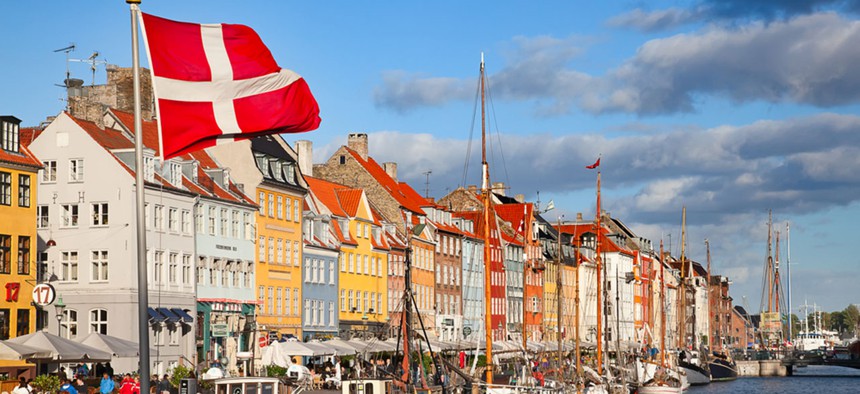
Fedor Selivanov / Shutterstock.com
The Happiest People in the World Define What Makes Them That Way
Denmark's culture ministry surveyed its citizens on their most cherished values.
When it comes to happiness, Danes know what they’re talking about. Denmark ranked first among 156 countries in the latest World Happiness Report (pdf), which asked people to rate their happiness levels on a range of things, from income and social support to health expectations and trust in institutions.
But how did Danes get to be so happy?
Bertel Haarder, the country’s culture minister, wanted to find out. In June, he asked citizens to send in what they thought were the country’s most important values. From 2,500 suggestions, the ministry pared it down to 20 and put it to an online vote. More than 300,000 people participated, the Local reported, resulting in this list of the top 10 national values (the quotes are definitions from the ministry, compiled by the Local):
- Freedom: “Freedom is the fundamental value of Danish democracy. In the Western tradition the freedom of the population is tied to the freedom of the individual.”
- Equality under the law: “Denmark is often at the top of international surveys on trust and low corruption.”
- Gender equality: “The Danish society is based on equality between the sexes. This means that men and women should have the same rights and opportunities.”
- Hygge: “Hygge is considered a special way of being together in a relaxed atmosphere. Hygge is its own word and many say it can not be translated.”
- Welfare society: “In the Danish welfare society, residents enjoy a high level of protection against social and physical risks and benefit from of a range of public goods.”
- Trust: “The Danish culture of trust is based on an expectation that one’s fellow citizens and public institutions are reliable.”
- The Danish language: “Danish is the mother tongue of more than 90 percent of the population in Denmark. Language is not just a communication tool; it is a culture bearer.”
- Association activities and volunteerism: “Associations constitute a basic way of organizing communities throughout Denmark.”
- Liberal-mindedness: “Liberal-mindedness is based on the premise that all people should have the right to decide over their own lives. To demonstrate liberalism means having an open-minded and tolerant attitude and mindset.”
- Christian heritage: “Christianity’s concept of charity and the Protestant ideas about the importance of work, personal responsibility and equality of all people before God have left their mark upon modern Denmark.”
Two things are notable about this list. The first is that Danes seem to value things that places like the US and Britain seem to have lacked in 2016: Danes trust their government, they support a welfare state, and value gender equality.
On the other hand, inherent in the list is that not all is well in Denmark. Part of what seems to make Danes happy is a singular identity: speaking the same language and worshipping the same god. This sits somewhat awkwardly with an embrace of liberal-mindedness.
The truth is that Denmark is not always so high-minded, and the lessons from a happy but homogenous Nordic nations of a few million people are tricky to apply in big, diverse, and messy countries like the US and UK.
In January, Denmark passed a controversial law requiring refugees entering the country to hand over their valuables as compensation for their stay (Switzerland has a similar law). And recent research shows(pdf) that income mobility in Denmark is superior to the US, thanks to redistributive policies, but educational mobility is low, due to muted incentives to pursue higher education (another function of generous welfare policies).
Others think the Danes’s happiness is as much a product of low expectations as a true zest for life. And hygge, that cherished Scandinavian sense of cosiness? It may be mostly about the weather.






